The emotional highs and heartbreaks in Thai sapphic series often lead back to one creator. GL dramas by Chao Planoy have shaped a formula fans can’t stop watching.
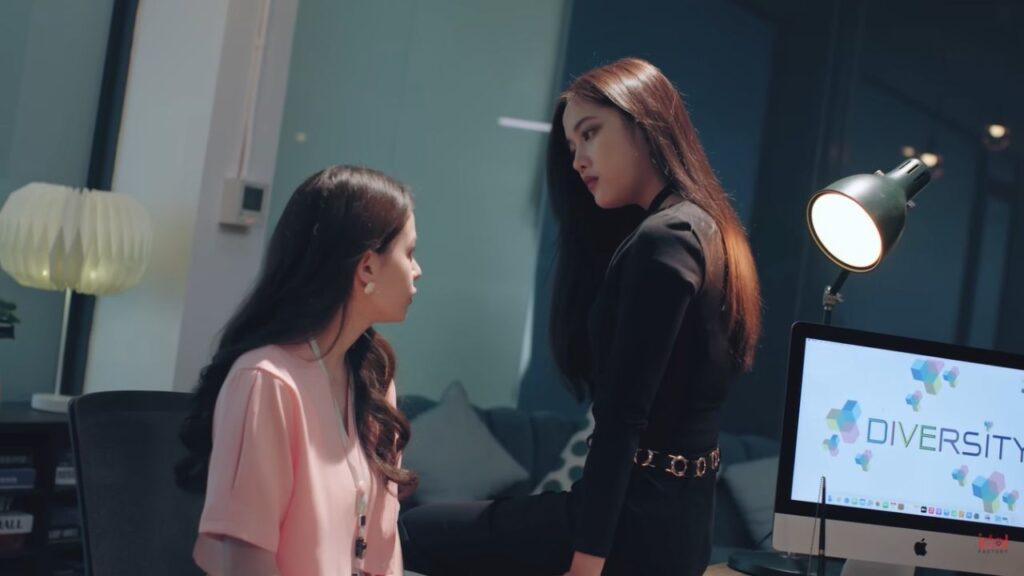
Have you noticed how many Thai GL shows share the same emotional patterns, characters, and conflicts? That’s no accident. Many of the most popular sapphic series today come from one writer. Welcome to the world of GL dramas by Chao Planoy, a name now strongly connected to the genre.
It all began with one successful show. From there, her stories sparked a wave of new series that still shape how viewers connect with queer women’s love stories in Thailand.
From GAP the Series to Us, Affair, and Pluto, her dramas fill studio schedules and lead fan discussions worldwide. They follow a familiar style with strong tension, deep emotion, and characters you can’t stop watching, even when they make harmful choices.
You might love or dislike her stories. But one thing is certain. They are hard to ignore. These dramas go beyond simple romance. They dive into conflict, power, and identity. Even with flaws, the representation often feels honest and raw.
So why do her stories keep appearing? And why do both producers and fans keep saying yes? Let’s take a closer look at how GL dramas by Chao Planoy helped shape the genre and what that might mean for the future of Thai GL.
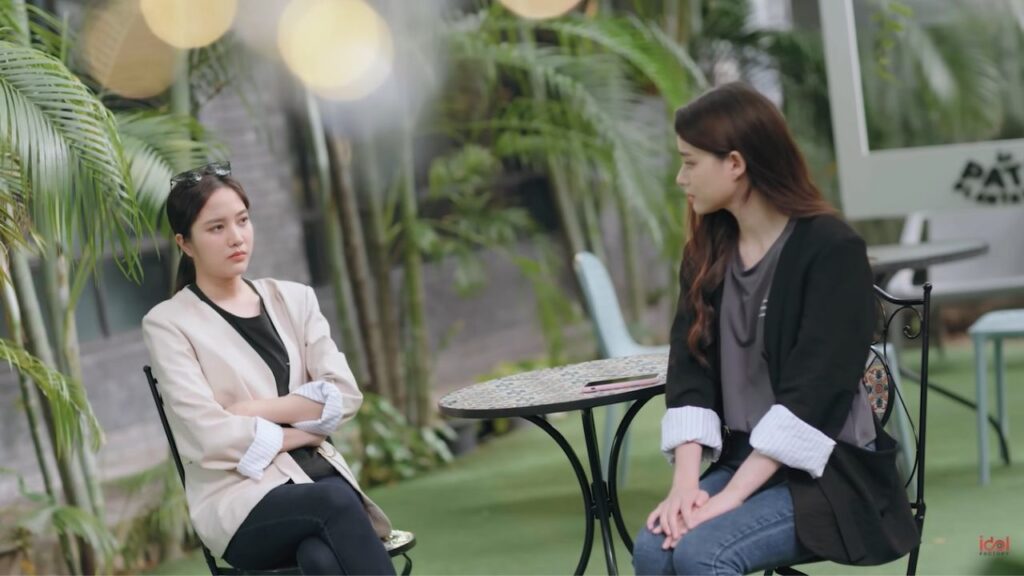
Table of Contents
GAP and the Beginning of a Trend
When GAP The Series first aired, it did more than add a new title to the Thai GL scene. It marked a turning point.
The show introduced a wider audience to the emotional and stylized storytelling that would soon define GL dramas by Chao Planoy. With bold characters and strong chemistry, GAP The Series caught attention, even from people who had never watched GL content before.
Local critics in Thailand were quick to point out problems. They noted the toxic behavior and unbalanced power dynamics. Still, the series became a major success overseas.
Viewers around the world connected with the tense romance between Sam and Mon. Many followed the emotional journey that unfolded in each episode.
This global response made producers take notice. GAP’s streaming numbers and active fanbase proved that GL dramas by Chao Planoy had a strong and growing international audience, even when the stories sparked debate.
The series changed the game. It showed that success was not just about local praise. Global fan support could drive a show forward.
After GAP, more adaptations of her novels followed. Titles like Us, Affair, and Blank brought similar emotional patterns, with small changes to match what audiences wanted.
GAP The Series was just the beginning. But more importantly, it sent a clear message. Viewers were ready for stories about women’s love that were bold, emotional, and sometimes messy.
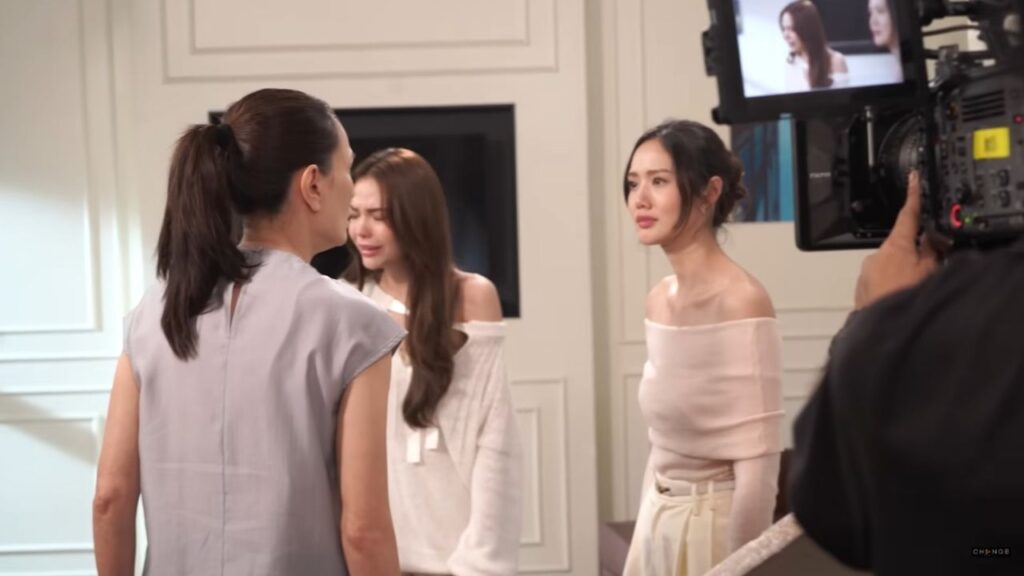
From Page to Screen: Why Her Novels Get Picked
Many people ask why so many Thai GL series come from the same author. The answer lies in a few key reasons that make GL dramas by Chao Planoy appealing to both producers and studios.
First, her novels are full of strong emotions, layered characters, and unexpected twists. These elements keep readers and later viewers engaged from beginning to end.
Producers also prefer stories that already have a built-in audience. When a novel has loyal fans, adapting it into a series brings more attention and viewer interest. This lowers the risk for studios, especially when working with smaller budgets.
Fans also recognize the themes and tropes in Chao Planoy’s stories. They already know what to expect, which makes them excited to see those scenes brought to life on screen.
Another reason her books get chosen is the focus on intense relationships and emotional power struggles. These storylines work well in visual media. They bring in drama, tension, and emotional highs and lows that keep viewers watching. Her stories often blend love, jealousy, conflict, and social pressure, creating strong material for screen adaptations.
In GL dramas by Chao Planoy, studios find the sweet spot. They can keep production costs low while still pulling in a loyal, global fanbase.
The shows don’t need blockbuster budgets to succeed. They rely on powerful storytelling and dedicated viewers. This winning combination keeps her novels at the top of the adaptation list and cements her influence on the Thai GL genre.
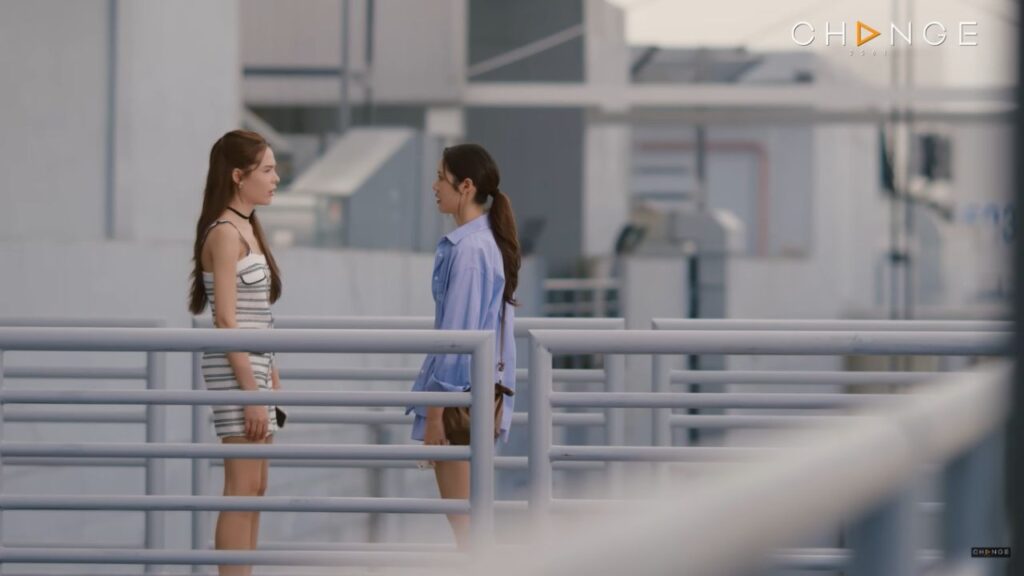
Love or Control? The Toxic Patterns
One of the most debated parts of GL dramas by Chao Planoy is the repeated use of toxic relationship dynamics. These stories often deal with heavy themes like power imbalance, past trauma, and emotionally intense romance.
While these elements can add depth, they sometimes cross a line. Instead of showing complexity, they risk making harmful behavior look romantic.
In many of her stories, one lead character is dominant. This person often has a high social status or holds power at work. The other lead tends to be more vulnerable or struggling financially. This setup creates tension, but it can also lead to unhealthy patterns. Sometimes, control is mistaken for love.
Trauma plays a big role in shaping how characters behave. It helps explain why some act cold or aggressive in the beginning. But trauma should never excuse toxic actions that hurt others.
It’s important to show flawed characters who grow and learn. However, portraying harmful behavior as normal or romantic sends the wrong message.
Some of Chao Planoy’s novels have faced criticism for this reason. Critics say the stories sometimes ignore or gloss over the damage caused by toxic patterns. Adaptations may soften these moments, but the original books set the tone. Viewers and readers need to approach them with care.
The focus on these themes in GL dramas by Chao Planoy points to a larger issue in the Thai GL genre. How can creators show real struggles in relationships without making harmful behavior seem acceptable?
As fans ask for better, the demand for healthier queer love stories is growing. Many now want to see respect, growth, and care take center stage instead of control and pain.
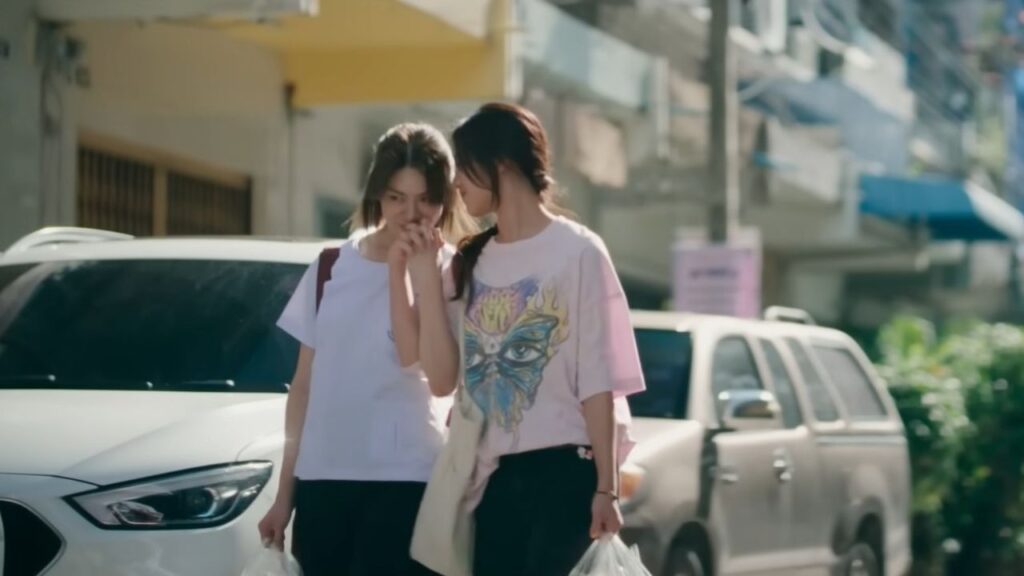
Adaptation as Soft Redemption
While the original novels often contain toxic relationship patterns, some adaptations of novels by Chao Planoy take a softer and more thoughtful approach.
In response, screenwriters and directors recognize the need to balance the intensity of the source material with more nuanced portrayals that appeal to modern audiences. As a result, this shift has helped some series transform problematic aspects into moments of growth and genuine connection.
For example, take Pluto and Us. Both shows soften some of the more troubling behaviors found in their novel counterparts. In Pluto, the characters’ emotional struggles are still present. However, their interactions emphasize mutual understanding and healing rather than conflict driven by control or manipulation.
Moreover, the adaptation focuses on building trust gradually, giving the romance space to develop without the heavy toxicity that can alienate viewers.
Similarly, Us tones down certain intense scenes and toxic dynamics from the original novel. Instead, it highlights the emotional vulnerability of the characters.
Consequently, the relationship evolves with more respect and less coercion, which resonates better with fans looking for authentic and healthier queer love stories. These adaptations show how directors can use subtle changes in dialogue, pacing, and character development to shift the narrative toward more positive messages.
In doing so, these series open doors for wider acceptance of GL dramas by Chao Planoy and help reshape expectations for the genre.
Ultimately, while the original novels remain controversial, the adaptations demonstrate that there is space for redemption and growth within these stories. This makes them more accessible and enjoyable for a broader audience.
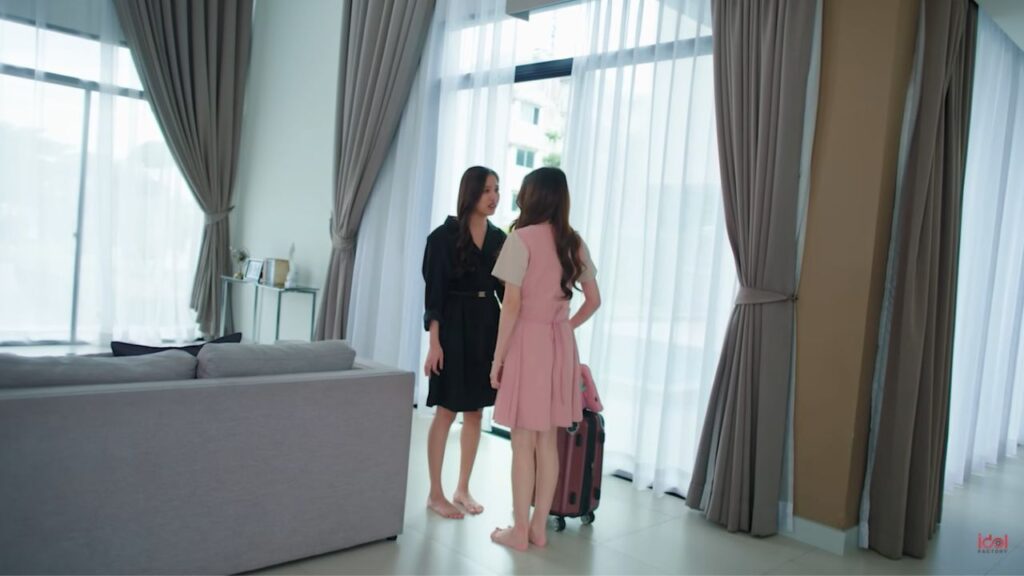
The Full List of Chao Planoy Adaptations
When it comes to GL dramas by Chao Planoy, the number of adaptations is impressive. Each series brings something unique to the screen but still carries the author’s signature themes and style. Here is a quick look at the main adaptations every fan of Thai Girls Love dramas should know.
1. GAP the Series
GAP the Series was the first to grab wide attention. It showed viewers the intense and often complicated relationships that define many of Chao Planoy’s works. It set the tone for future adaptations with strong characters and an emotional plot.
2. Affair
Affair tells the story of childhood friends separated by social class and time. It explores love, forgiveness, and shifting power. The series highlights the struggles and growth of its main characters in a heartfelt way.
3. Mate the Series
Mate the Series blends sweet romance with drama. It balances tender moments with challenges that test the characters’ bonds. This adaptation is a favorite for those who want a traditional but emotionally deep GL story.
4. Us
Us stands out for its raw emotional depth. It explores trauma and healing with care. The series balances difficult moments with hope, making it a key adaptation on this list.
5. Apple
Apple offers a fresh take by reversing expected roles. It gives a unique twist to familiar character types that fans of the genre will recognize.
6. Pluto
Pluto shows a more mature and thoughtful look at love and relationships. It focuses on personal growth and emotional complexity beyond simple romance.
7. Blank the Series
Blank the Series explores an age-gap romance. It pays close attention to consent and emotional balance. This avoids common problems found in similar stories.
8. My Marvellous Dream is You
Finally, My Marvellous Dream is You closes the list. It focuses on equal partnership and overcoming personal challenges. The series offers a more balanced view of queer love after an emotional journey.
Together, these adaptations show the variety and recurring themes in the world of GL dramas by Chao Planoy. They are must-watch series for anyone interested in this genre.
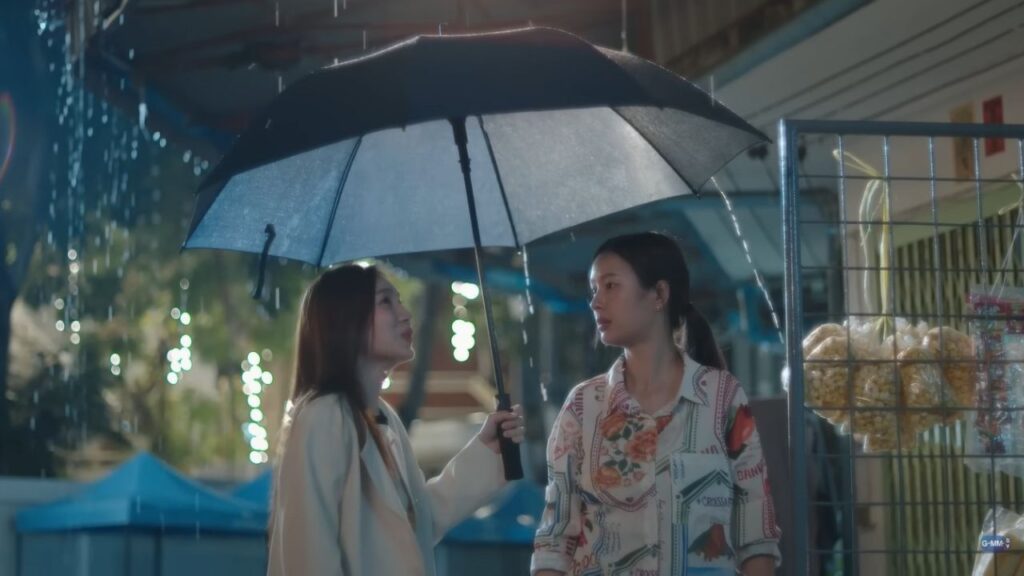
The Future of Thai GL: Beyond Planoy
For years, GL dramas by Chao Planoy have led the Thai Girls Love scene. However, now the landscape is starting to change. Indeed, new voices and fresh stories are emerging. Together, they give audiences a break from the repetitive and often toxic plots that many adaptations have used.
In fact, several new authors and screenwriters are pushing boundaries. Specifically, they focus on healthier relationships based on respect, clear communication, and real emotional connection.
Moreover, these new stories challenge old tropes of power imbalance and trauma-driven romance. Instead, they offer a more positive view of queer love.
Meanwhile, fans are growing tired of the same plots. As a result, they speak out, asking for stories that don’t romanticize toxic behavior. Consequently, this demand pushes studios to choose scripts that focus on strong character growth and honest, hopeful portrayals of love.
Looking ahead, the future of Thai GL looks more diverse and inclusive. Characters can explore love without control or manipulation. At the same time, these changes meet the growing tastes of viewers and help the genre reach new international audiences.
As the industry grows, it’s clear that GL dramas by Chao Planoy set the stage. Now new stories will take the lead, stories about growth, healing, and true partnership. Ultimately, the future is bright for Thai GL, with richer and more varied tales on the way.
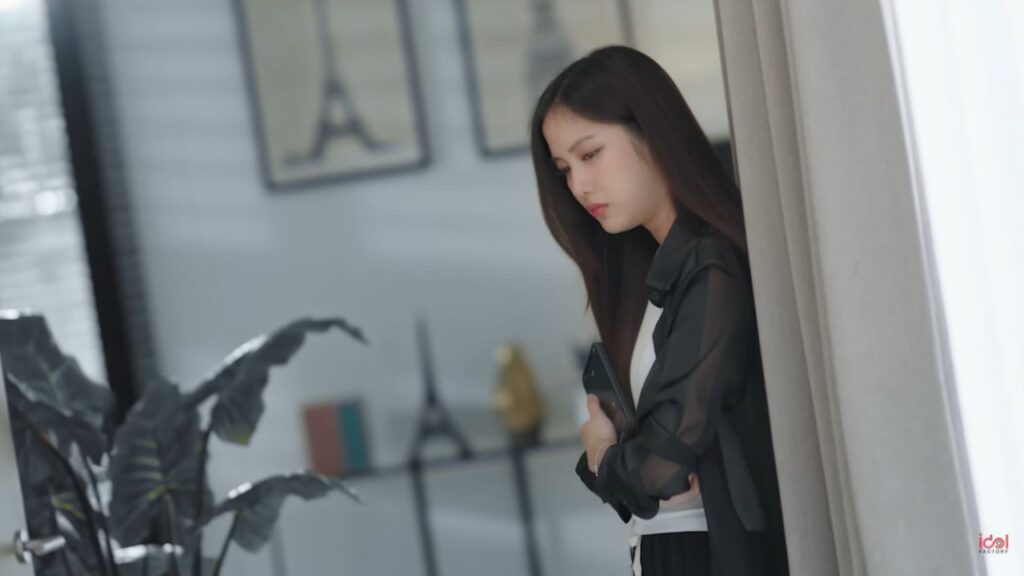
What Do We Want From Queer Love Stories?
As fans of Thai girls’ love series, it helps to pause and think about what we really want from queer love stories. Audiences play a big role in shaping which stories get told. Our tastes and feedback decide which stories rise and which fall behind.
Many viewers have grown tired of seeing the same toxic relationship patterns in many shows, including some well-known GL dramas by Chao Planoy.
This raises an important question: must queer love always show trauma, power struggles, and dysfunction? Or can it be softer, more complex, and healthier?
There is a strong desire for stories that break free from clichés. Queer relationships can be bold without harm. They can be tender but still powerful. They can show challenges without making abuse or manipulation seem romantic. These are the stories that deserve our attention and support.
Reclaiming what GL stories can be means welcoming diversity not only in characters’ backgrounds but also in how love grows and shows itself. The future of queer romance looks bright when creators and fans push for truth, depth, and real emotion.
In the end, we all take part in this cultural talk. By asking for stories that respect and celebrate queer love in all its forms, we open the door for fresh, meaningful, and inspiring tales. These are the stories that reflect the lives we want to see on screen.
Your Turn: What Do You Think of Chao Planoy’s adaptations?
Have you watched any GL dramas by Chao Planoy? Which ones spoke to you? Which left you wanting more? Whether you love the strong emotions or feel worn out by the same old tropes, your opinion matters.
If you want something different, check out our post with healthier Thai GLs to binge. These series focus on consent, mutual growth, and real emotional connection. Because queer love stories can be just as exciting without the toxicity.
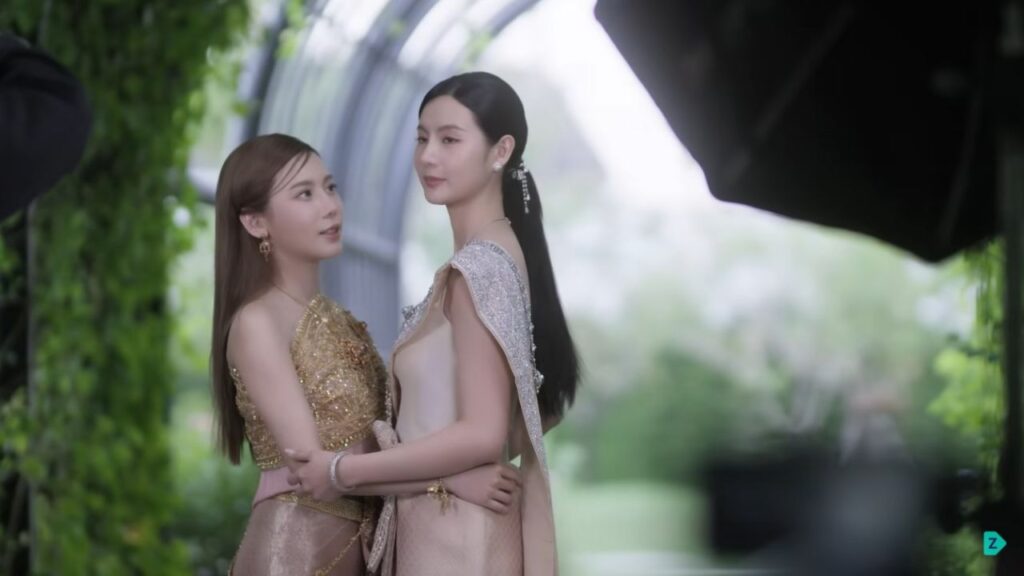
Featured image: Promotional still courtesy of IdolFatcory.



